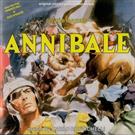|
|
||||
|
by Richard Jack Smith  Below are more soundtrack reviews and poetry. Drag Me to Hell (Christopher Young, 2009) *** How much do our expectations and bias cloud enjoyment? Can open-mindedness be blunted by such strong preferences for what came before? A curious case, Christopher Young’s Drag Me to Hell -- about a banker cursed by a gypsy lady who loses her home -- felt like a solid score, just not a transcendent one. There’s a stunning central theme which shames Jerry Goldsmith’s “Ave Satani” from The Omen. Otherwise, praise runs dry. Meanwhile, I thought about what factors led to this conclusion. The answer: two scores. (1) Danny Elfman’s Batman and (2) William Stromberg’s Trinity and Beyond. The sheer gravitas dealt by these mammoth compositions overpowers Young’s frantic strings and chorus. As such, the latter’s inability to empower beyond the main titles only serves to reinforce such a singular accomplishment. If he’d nurtured the hair-raising pull across the entirety of Drag Me to Hell, a wonderful album would be our reward. While the twin forces of bias and expectation have exposed flaws, it has justified the quality which remains. The Jade Pendant (Anne-Kathrin Dern, 2017) Generic and clichéd, The Jade Pendant proves faulty by design. German composer Anne-Kathrin Dern operates in the realm previously occupied by James Newton Howard (Snow Falling on Cedars). The latter wasn’t a favourite of mine -- such unabatingly sad and glacial pacing made the music insufferable. Scanning Dern’s credits as well as the awards she has received, it’s clear she has a following. While the musical approach behind The Jade Pendant doesn’t promote any singular identity, I’ll be most interested to see where she goes from here. Knights of the Round Table (Miklos Rozsa, 1953) **** A poem: Knights of the Round Table What a romp! A kind of fable. Dreams of courage and love Flew in via glowing dove.
When times are bleak, even disenchanting Rozsa’s gift was enchanting. His spell lifts the room Proving there’s no need for gloom. Meteor (Laurence Rosenthal, 1979) **** Whether the film overachieved or underachieved, one fact remains: Laurence Rosenthal gave Meteor his best shot. For example, the Russian material ends up fondly recalled, while the tight album presentation inspires replays. Highly recommended. Miracles from Heaven (Carlo Siliotto, 2016) *** Time to rhyme: Cloudy fingertips of sun Where rainbows have the fun. A thought, a feeling might be stirring Angel wings murmuring.
They say white light Fractures the eternal night, As a twig breaks or bird tweets There are many beats.
To believe means falling in love, so no stalling. Miracles from Heaven, such grace Evoking warmth and grassy pace.
Let notes caress the heart While green pastures fulfil the missing part. I was blessed to have partaken Of mysteries soon to awaken. Once Upon a Time in the West (Ennio Morricone, 1968) **** Another poem: Hear Ennio Morricone at his best With Once Upon a Time in the West. Themes for Harmonica, Frank, Cheyenne and Jill At day’s end, music foots the bill.
What I seek involves personality How notes suit one’s identity. For Morricone, this was a golden age. Taking inspiration from the page.
I toast his good health In sharing such wealth. The Return of a Man Called Horse (Laurence Rosenthal, 1976) ** In the tradition of purely forgettable themes, Laurence Rosenthal’s The Return of a Man Called Horse manages to stir minus any discernible feeling. During “The Massacre,” it looks like things might pick up. However, it turns out to be a ruse as the score plays like an experiment in atmosphere and percussion. Various gritty elements tend to underwhelm, such as the lethargic “Denial.” Generally, these are tracks I prefer to avoid given their meandering nature. The same apathy afflicts “Elf Woman.” Frankly, I’d read a lot of positive things about Rosenthal’s score. There was Christian Clemmensen’s thorough analysis on Filmtracks which definitely got me intrigued. Yet the only tracks which connected with me were “Raven’s Sacrifice” and “The Buffalo Hunt.” Bizarrely, “Training for War” made me feel I’d stepped into Jerome Moross’ The Big Country without the latter’s rousing sense of place or self-awareness. Rosewood (Wynton Marsalis, 1997) * While Wynton Marsalis’ music for Rosewood was doubtless fun to produce, it’s a slog on album. Discarded from the film and replaced by John Williams, listeners can experience Marsalis’ version on the CD “Reeltime.” It’s pleasant but dull, the type of thing you’d hear around a neighbourly campfire after a tough day’s field labour. A poem to fill in the blanks: Fiddling offended the ears We simply count the years. Reeltime made Rosewood last The music hardly a blast. The Silence of the Lambs (Howard Shore, 1991) Only a poem this time: My hair actually turned grey As the music fell into disarray. The Silence of the Lambs And those whining hams.
Left in the hands of hack Who had our back? Not Howard Shore The man who spelled gore.
Seconds felt like years I held back tears. “Lecter’s Escape” made up for chill Before pushing us down the hill.
Quite how Hannibal Lecter Stole Best Picture I couldn’t say. The masses had their way.
SCORE OF THE MOMENT Hannibal (Carlo Rustichelli, 1959) ***** Romantic hearts tap the rhythm of war, seldom appeased by steel on leather. Ergo, the trumpet may sound, marking defeat or declaration of principles. The rub subsides into a groove. Painted faces unmask the hatred men make for animals. Thus, bestial drums shiver, as horns move the ancients to whisper among themselves. How music can dance because the archer saw the end not in pain but as a rainbow. |
||
|
© 2026 - ReelTalk Movie Reviews Website designed by Dot Pitch Studios, LLC |



